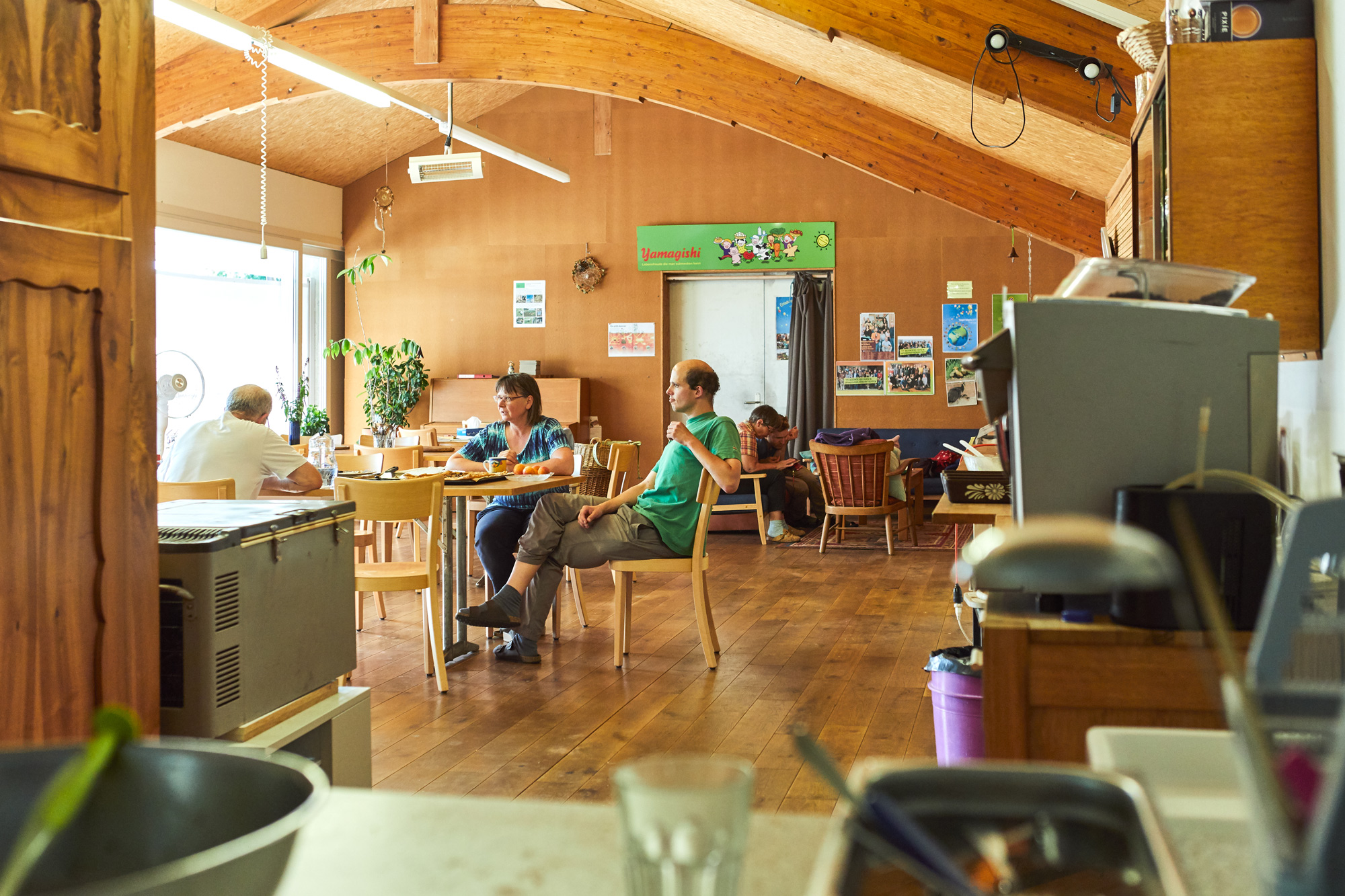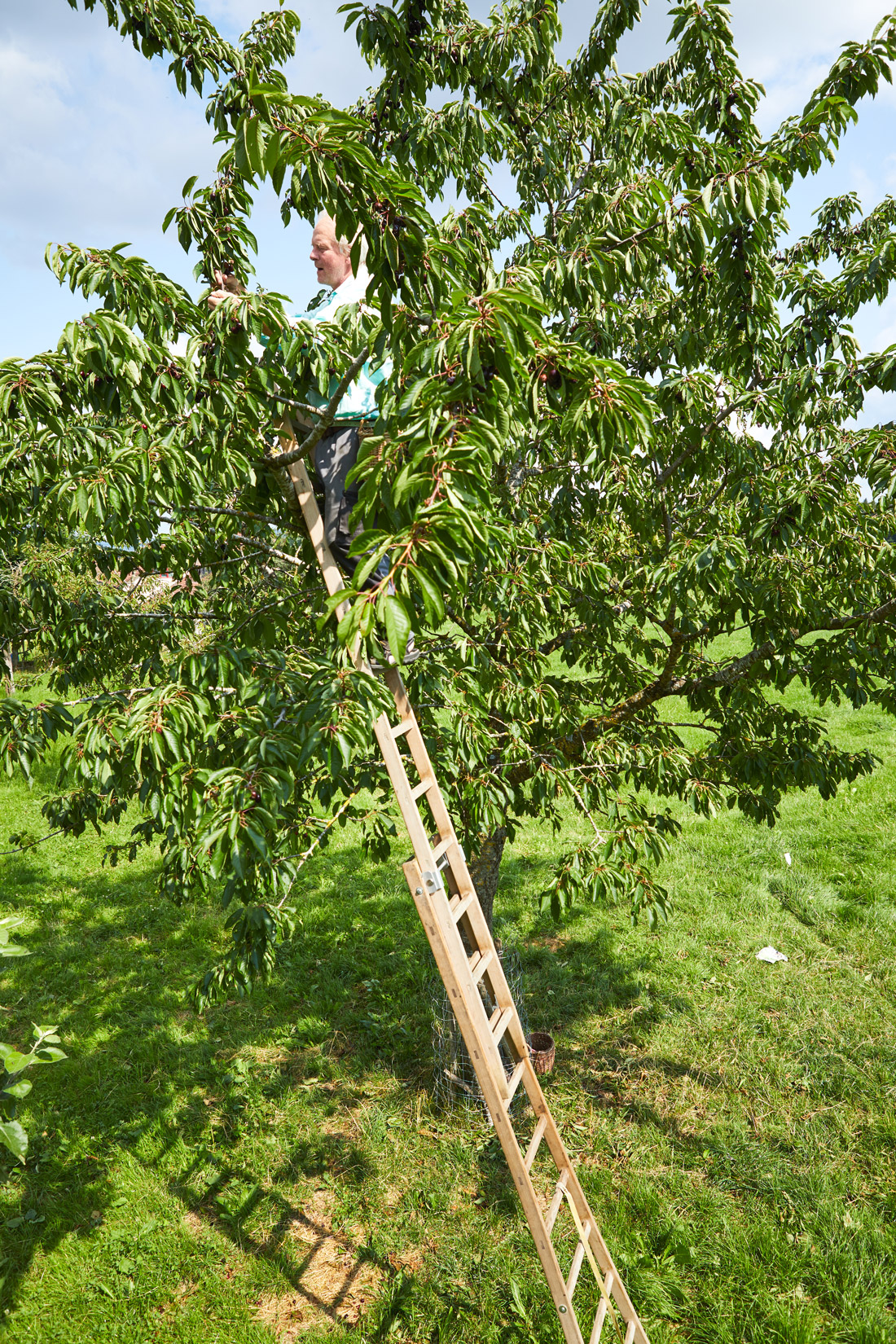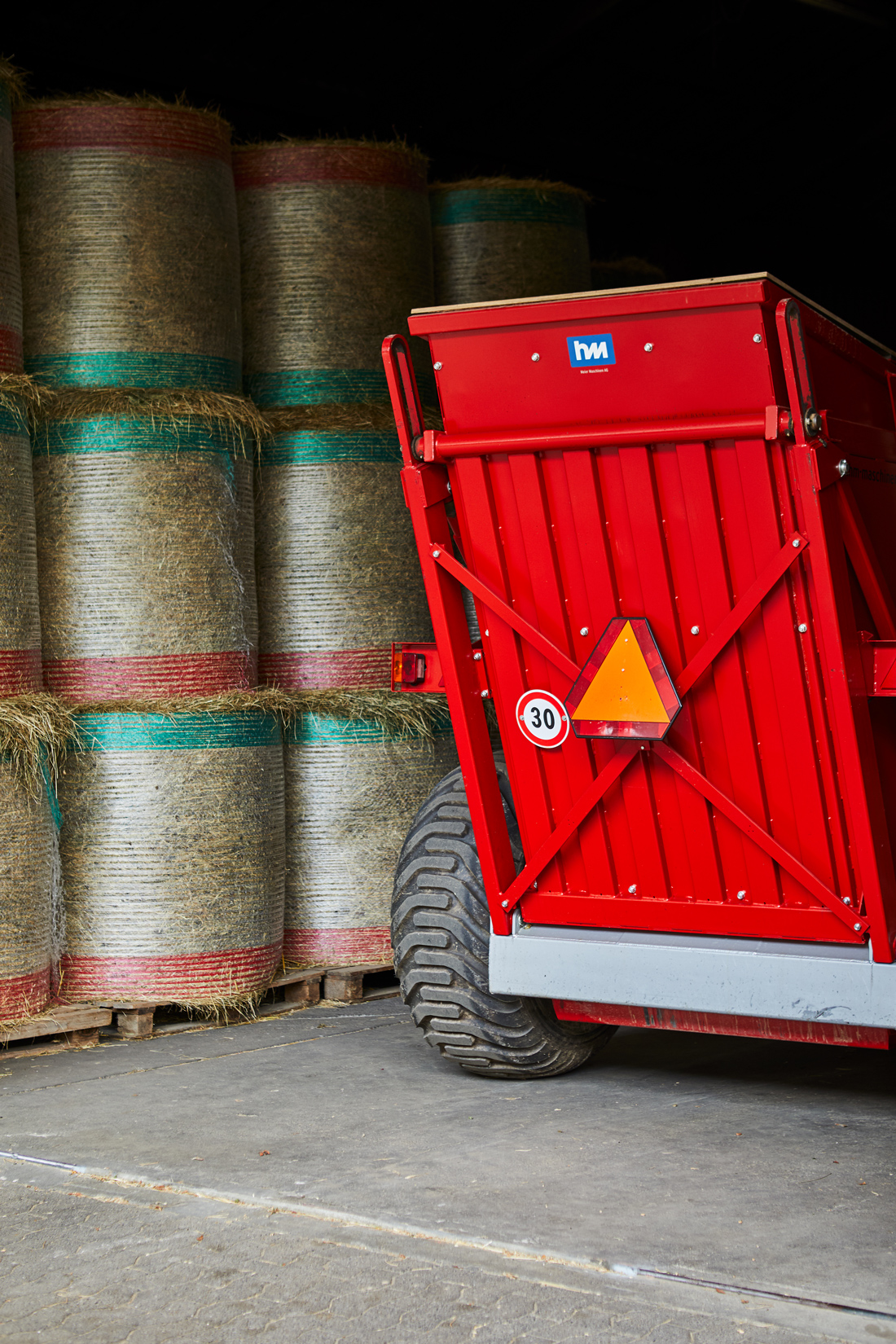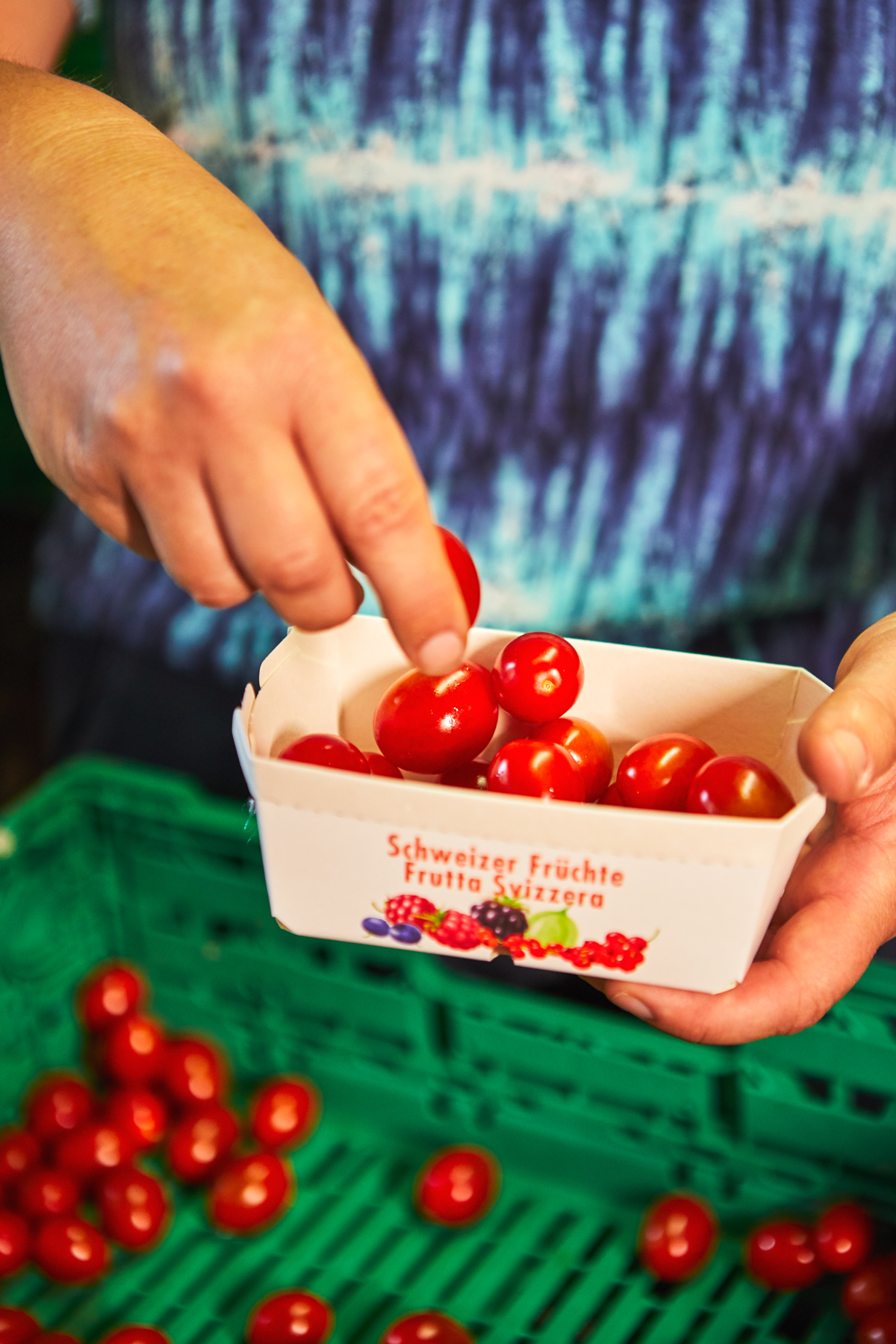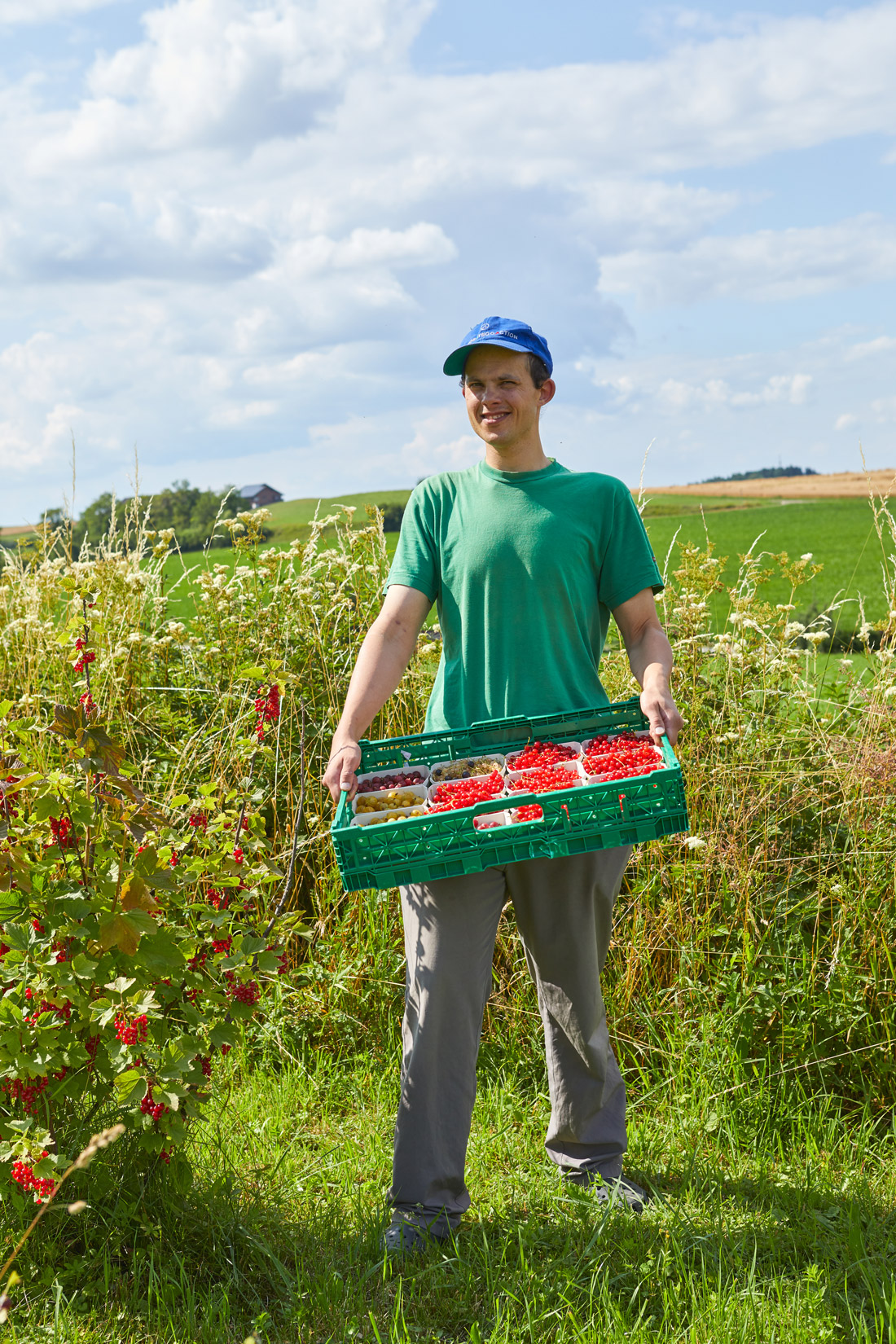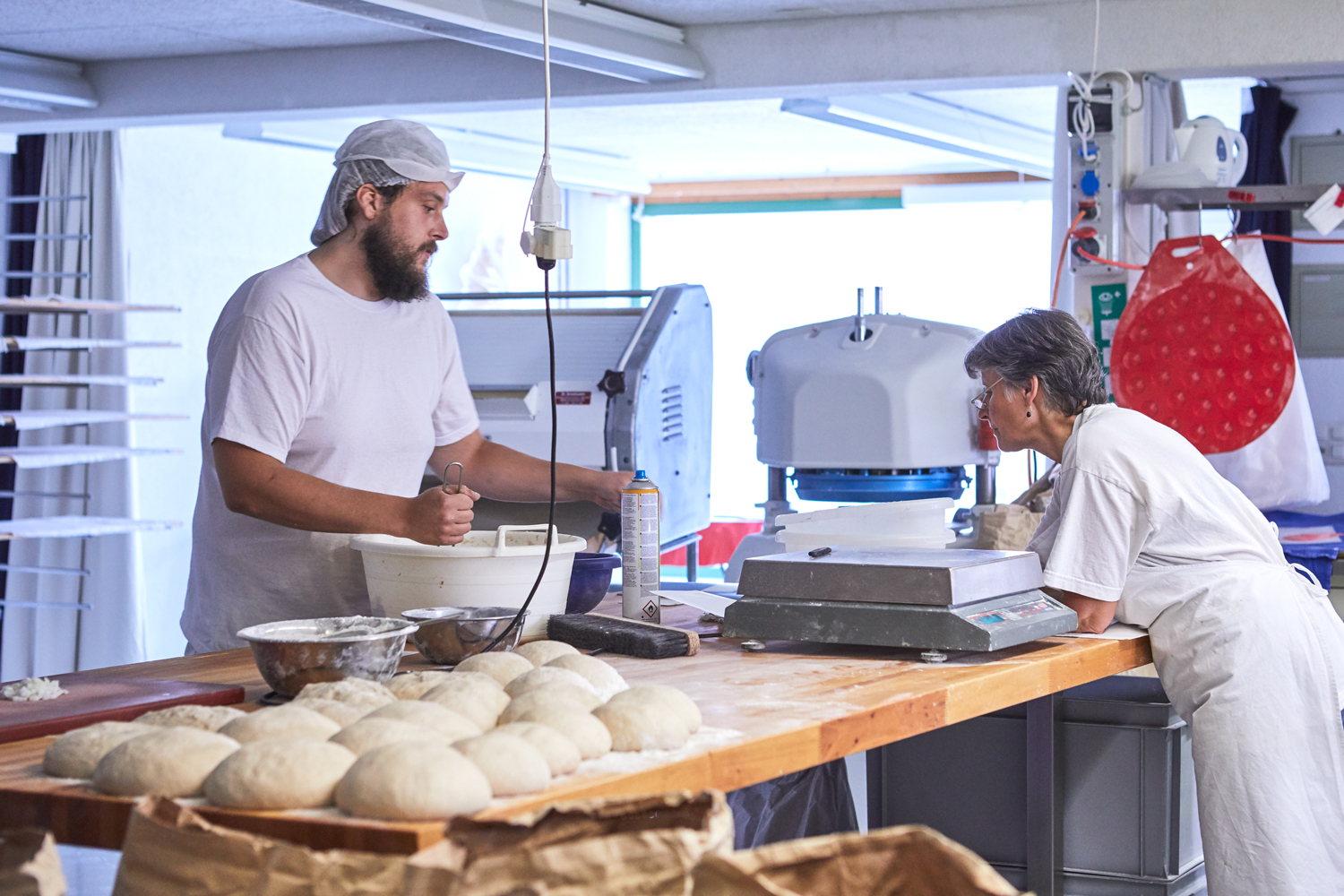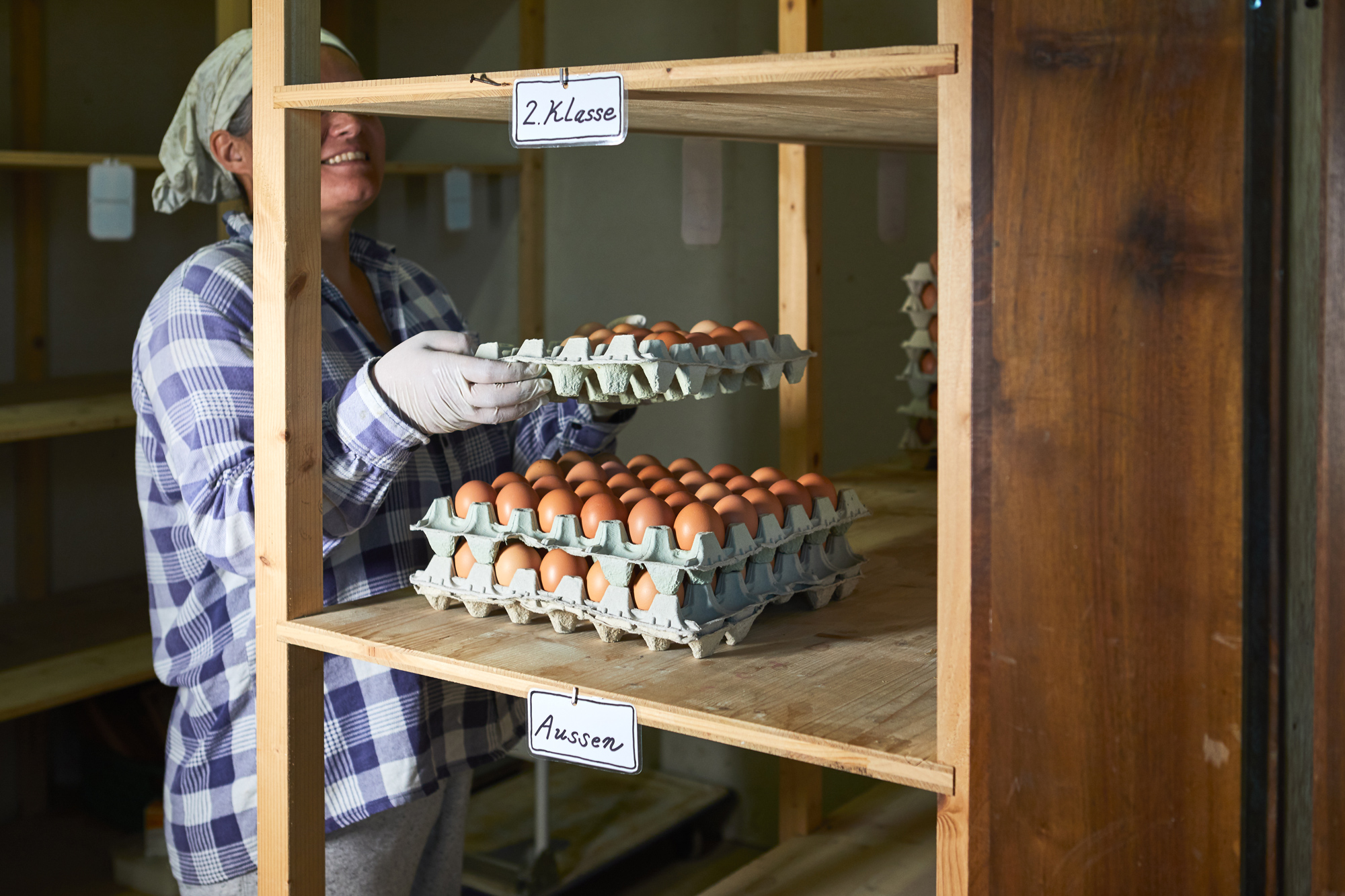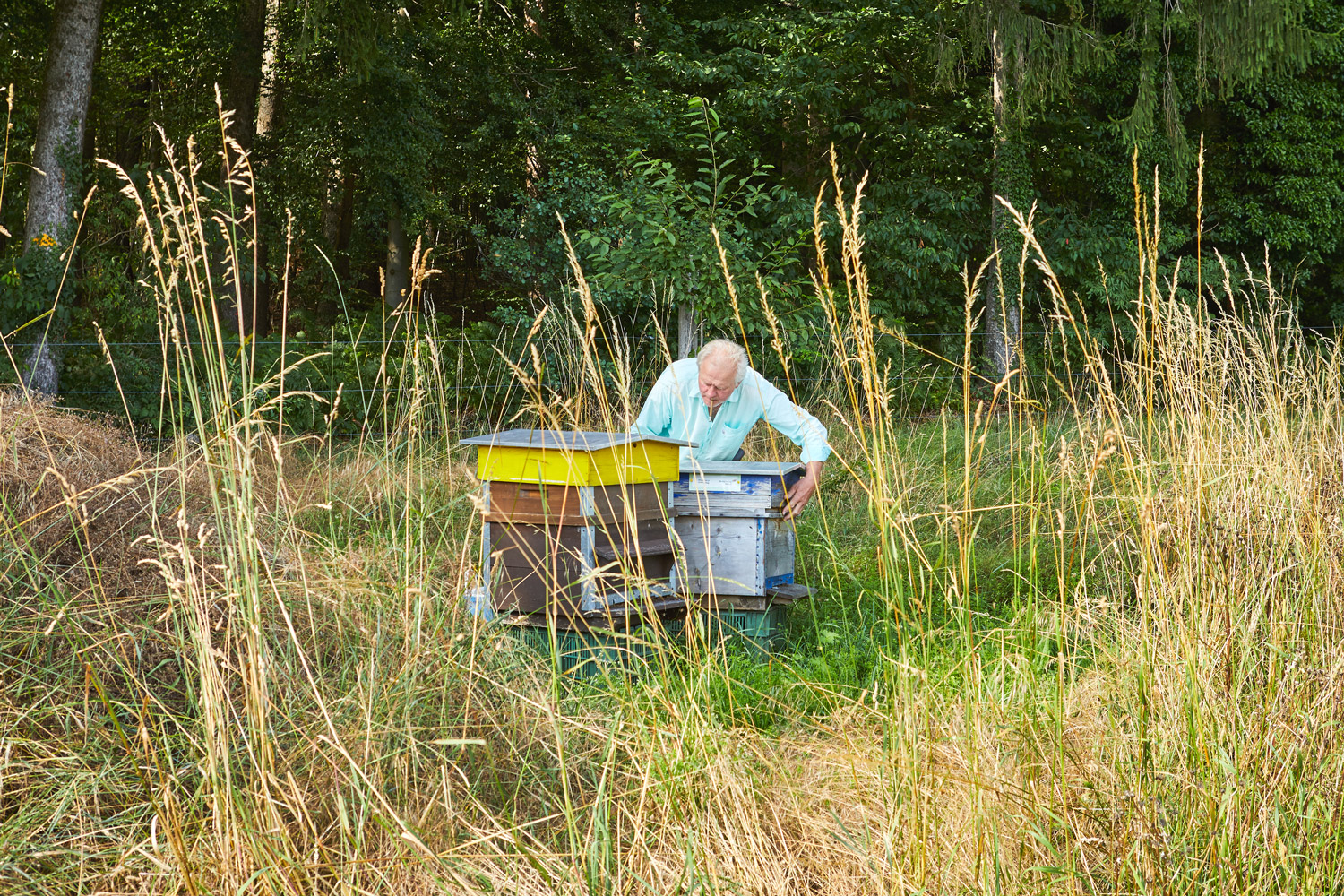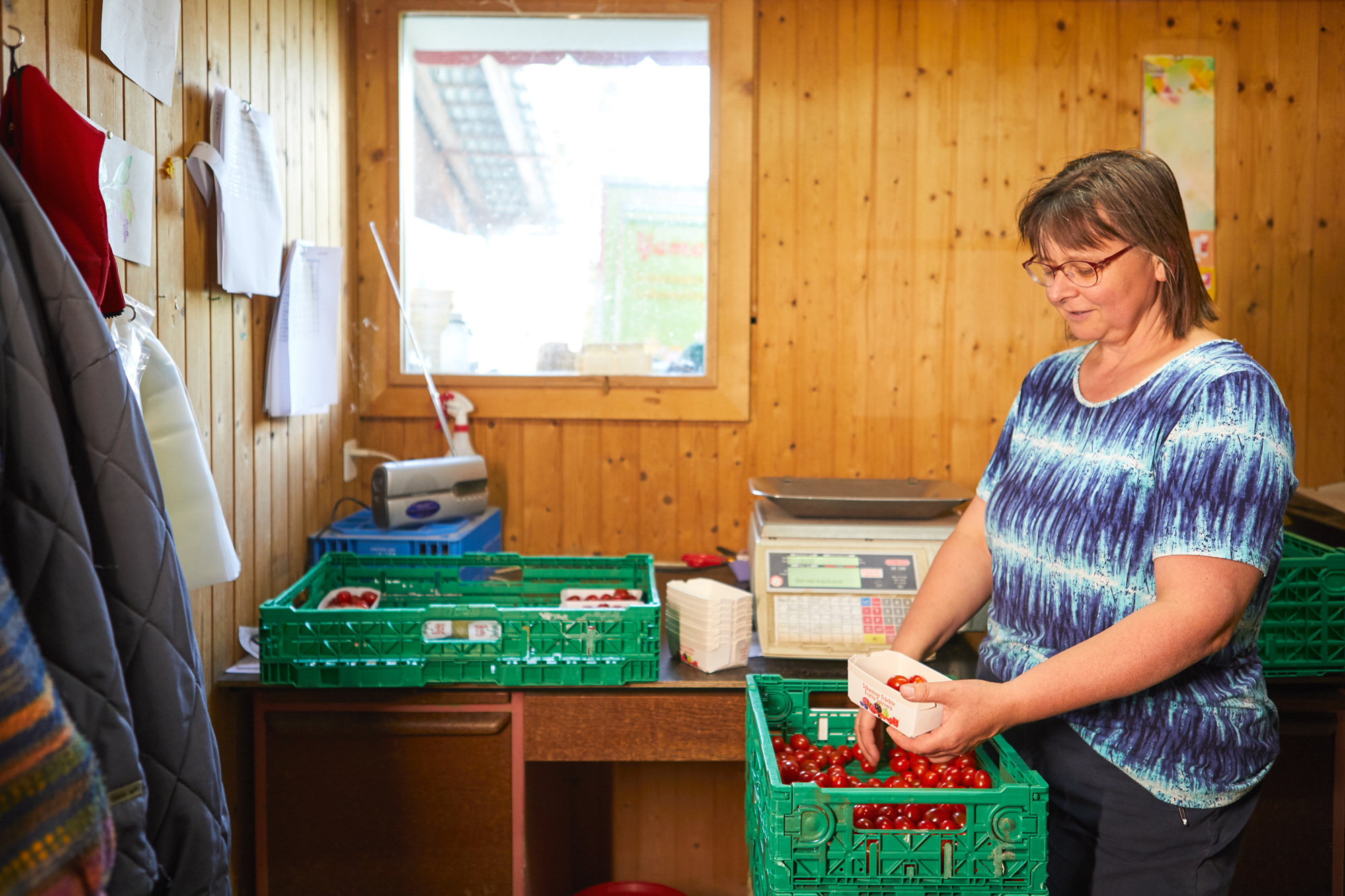A life without private property?
Nicole Gutschalk • 13.08.2019
Those who are self-sufficient, privately owned communities and economists advocating an alternative economic model – are they all outsiders and illusionists? Or, are they people who do not want to wait around until policymakers and industry get their act together to bring about more sustainability and social justice? We visited Yamagishi farm in Hagenbuch (ZH). A place shared by 15 people who completely renounce private property and who live and lead a self-sufficient life.
There are many people who do not want to wait any longer and want to start to right now to live more sustainably and realise their vision of a society that is more socially equitable and humane. They think about new models, break existing structures. And they take matters into their own hands, for example by producing their own electricity and growing their own food – in the urban garden or in an institutionalised garden cooperative. They reduce their belongings to a minimum, live independently in self-built “Tiny Houses”, without the need for bank loans and mostly reject consumerism. Others believe in an alternative model of economics. In an economy of common good, which places co-operation, networks and the community in the foreground, therefore symbolising a stance against unlimited economic growth.
Regardless of whether it is environmental, health, social or economic motivations that are in the foreground, more and more people are choosing to pursue alternative paths at one level or other. The basic idea is the same with most: They want independence. From things, structures and tendencies, which they cannot and do not wish to be connected to any longer. And of course, there is one thing that really connects them: The satisfying feeling of changing something.
Living in a community without private property
“Radishes are sprouting here, fennel is growing over there and peas are growing there – look, some pods have already formed!” Franca’s joy is really noticeable on the tour of Yamagishi Farm gardens on this June morning. The 25-year-old teacher only arrived at the colourful “patchwork family” in the Winterthur district of Hagenbuch a few weeks ago. However, this is not the first time she has lived and worked in an agricultural cooperative or community. But it is the first farm where she has found it particularly peaceful. “On other farms, there was always some jealousy between people or there was resentment, because one of them worked too little in the garden or lived in a larger room.” It’s different here. Franca quickly explains the reason: It is due to the Tokkoh spirit, which has its roots in 1950s Japan and according to which these current fifteen people who live in the courtyard in the eastern part of the canton of Zurich, abide. An attitude towards life that ultimately aims to enable all human beings to live in harmony with each other and with nature (see info box). And, a community that does not require any private property. The residents of Yamagishi court, for example, even share their wardrobes. “In practicality, it rarely happens that someone else wears a t-shirt, which I wear regularly,” says Alex, who joined the community about three years ago, after he googled “life without possessions” on the Internet and soon after attended a Tokkoh course.
The Yamagishi farm in Hagenbuch has existed since 1994. And it is easy to imagine that in a village of 1100 inhabitants amidst geraniums, idyllic church steeples and Swiss flags fluttering in the wind, the emergence of the community in the Winterthur SVP community was viewed with much scepticism. “They labelled us as a sex sect, and we were also called communists and hippies, yet we are neither politically nor religiously motivated”, explains André, who has become somewhat of a mouthpiece for the Yamagishi’s in Hagenbuch and has been here since the beginning of the community living on the outskirts of the village. At that time, the 60-year-old, with blue eyes and a soft voice, moved here with his wife and two children. “Ultimately, I have always been driven by the question of what contribution I can make to the well-being of all – for the land, animals and people – in the long term”. The former nurse of the Yamagishi community has found answers. “Actually it is quite simple: Alone, my vision is limited, together with other members of the community, I get an extended view of reality.”
The Yamagishis make a living selling agricultural products. With seasonal fruits and vegetables, but also with meat products from the in-house butchery and baked goods of all kinds. For this purpose, there are five green mobile shops parked in front of the ivy-covered main house. “Our food does not carry any special certification or organic labels, because we believe that the quality of our products can be tasted: how we handle our chickens, live with our sheep, goats and cows up here and the fun we have when we make our caramel or spätzli,” says Alex, who distributes food to markets and local neighbourhoods five days a week. Those who are not busy with sales, work in agricultural teams, or in the kitchen or butchers. In order for the life model of the Yamagishis to be compatible with the welfare state – which assumes that people are in a wage relationship – an administrative team ensures that wages are actually paid out and the AHV pension-scheme contributions of individual members are paid. However, wages then subsequently return to the common household budget. If you need money because you want to go to the cinema or need new shoes, you request it from the community. “I have enough of everything,” Alex says as he closes the gate on the geese and adds emotionally: “Above all, a zest for life – that is in every animal in the yard, in the cherry tree, in the chives and ultimately in myself.”
The Yamagishis’ ideas can not easily be pigeonholed. There is definitely a bit of Buddhism, with a pinch of Marx, spirituality and pacifism – but it does not really matter. Because in the end, there is only one thing matters: The Hagenbucher community and its alternative way of life, suggests that other ways are possible.
The Yamagishi movement was founded in 1956 near Kyoto. According to stories, a farmer named Myozo Yamagishi is said to have found a way to live in harmony with nature after a typhoon had spared his farm. After telling people in the vicinity why his fields suffered so little damage, the first Yamagishi community formed. There are now Yamagishi communities in seven countries, with over 30,000 members. The largest village in Japan has 400 inhabitants. The Yamagishis in Hagenbuch welcome visitors – you can contact them atprodukte@yamagishi.ch. In Switzerland Tokkoh courses are run regularly.
Interview
Rethinking the economy
What is the real green consciousness of our society? Is there an economic model that can protect our resources? Life@Home wanted answers to this – and much more – from social scientist and economist Isidor Wallimann.
Mr. Wallimann, what age are we living in?
In the age of scarcity. Resource scarcity to be precise – and this didn’t start just yesterday. The discourse dates back to the seventies and is fundamentally globalisation-critical and is committed to sustainability. The question that must be asked is: What can we do to oppose to “destructive” globalisation? Different environmental organisations have answers to this and are now being increasingly listened to again. At the moment, they are very loudly demanding a Co2 tax levy.
But for a long time things were very quiet. Why has there been a “standstill” with respect to the sustainability debate since the nineties?
In previous years, the green movements and parties were too weak in Europe. Since the late 1980s, they have been stagnating, rather than growing. Previously, for example, the Greens – in Germany – had a pretty big influence. “Jute not plastic” was a famous slogan from the seventies. Or think of the mass actions in wake of anti-nuclear demonstrations in the 1980s and the introduction of a 1991 carbon tax in Sweden.
And now, our youth are also going green again and are out on the street. What is our sustainable consciousness really like?
On the whole, our awareness has become stronger again and sharper. Not least, because more information is now available and accessible to everyone. Basically, therefore, each of us is aware of our own carbon footprint – and can or could, at least act accordingly and take certain measures.
But many are completely disappointed: Because, whilst they try to live sustainably, they feel abandoned by their political agents.
True. But ultimately, disappointment alone does not achieve anything. Because, often those who are completely disappointed, do not even bother to go to the ballot box – which is a pity. A certain amount of disappointment towards responsible political bodies on the other hand, can also act as an impulse for taking things into your own hands. For example, to act locally, socially and sustainably.
Is resistance to global mechanisms at national level even possible?
By all means, with strong, green parties in the background, who occupy more than 20% of the seats in a country – we are currently experiencing this trend, especially in Germany and in some urban centres in Switzerland – it is possible to enforce quite a lot at national level. But undoubtedly: Globalisation is an incredibly influential and complex force with financially strong players. So you often feel like you are tilting at windmills. But a willingness to take action is noticeable in many people these days: Many simply do not feel like buying products made as a result of cheap labour. Or they notice in their own everyday life that just like squeezing lemons, neither nature nor humans can continue to cause harm and squeeze out life.
The social economy, which you have been advocating for years and building up a network for in the Basel area, is based on a more responsible approach. What exactly is this alternative economic model?
Ultimately, the goal of a single farm should not be focussing on fast-moving financial gain, but an increase in the common good. This can be achieved through economic, political and social changes. Important aspects are sustainability, justice, human dignity, solidarity, democratic participation and the common good with different goals. What a social economy wants to promote is that, in the end, individual companies should bear responsibility for their environment.
According to the principle of solidarity?
Exactly, it is about strengthening cooperation with each other. In Basel, this network currently includes the printing industry, individual catering operations, grocery stores and agricultural projects.
And can the movement actually have any influence?
At the moment, our social economy and its alternative currency Netzbon in Basel are seen as symbolic. It is primarily about awareness. A realisation that in turn gives individual members of our cooperative the impetus to do something about the social and ecological problems of our time within their local environment.
The emeritus professor was a lecturer at the Universities of Bern and Fribourg, and at the University of Applied Sciences Northwestern Switzerland, as well as at various universities abroad. The social scientist and economist deals intensively with social movements and alternative ways of living. He is also co-founder and member of the board of association and cooperative “Social Economy Network” in Basel and co-initiator of the local currency netzbon. In addition, he supports urban agriculture projects in the Basel area as the founding president of the non-profit association Urban Culture Basel.
PHOTOGRAPHY: LUCAS ZIEGLER
